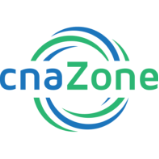Course Description
Physiology
Course Summary
Human physiology is the study of the normal function of body organs and tissues. Body organs that health care professionals study during their training include the skeletal, muscle, skin, nervous, cardiovascular, respiratory, digestive, renal, and endocrine systems, and the role of these organ systems. A basic understanding of how the normal body maintains a stable internal environment and efficient organ system functioning is important to recognize the physical stresses that disrupt organ system stability, such as acute and chronic medical problems, diseases, and infections. It is also important for all health professionals to know normal human body functions and processes that must adjust to physical variants and environmental stressors or imbalances affecting human health.
Course Objectives
- Describe how the human body maintains an optimal internal environment through homeostasis by way of feedback loops
- Explain the different organ systems of the human body and their functions
- Identify how the separate organs of the human renal system function normally to eliminate body waste in the urine
Course Syllabus
- Introduction
- Homeostasis and Feedback Loops
- Human Organ Systems
- Skeletal, Muscle and Skin Systems
- Nervous System
- Cardiovascular System
- Blood, Oxygen and Carbon Dioxide and Blood Clotting
- The Heart
- Respiratory System
- Digestive System
- The Liver and the Gallbladder
- Renal System
- Endocrine System
Target Audience:
CNA
Credits:
1.0



